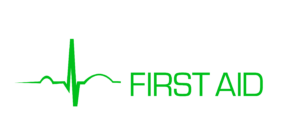Choosing a First Aid Training Provider
In a very competitive industry of first aid training courses largely available it can be a minefield choosing a first aid training provider. The aim of Optimal First Aid is to deliver the very best training available anywhere and to ensure the first aid certificates issued are not just for tick in the box exercises, we want people to understand basic lifesaving skills.
The 2013 amendment to regulation of the Health and Safety (First Aid) Regulations 1981 removed the requirement for HSE to approve the training and qualifications of appointed first-aid personnel. This now means that employers who require first aid training are required to ensure the chosen training provider is competent. This is known as ‘Due Diligence’
The new law states the following options are available in respect to first aid training:
Membership of an Awarding Organisation
Many training providers will be under an Awarding Organisation (AO) that is recognised by Ofqual to provided accredited courses. They will follow the AOs quality assurance process, follow lesson plans and use their prewritten assessments.
Membership of a First Aid Trade Body
Another route training providers follow is membership to a professional body that regulate courses. They still provide a level of quality assurance, but the work is done internally through the training provider and is then reviewed annually to check standards. These trade bodies are quick to respond in changes in guidance due to the level of competency in subject matter.
Voluntary Ambulance Service
Services such as St John Ambulance and the Red Cross operate independently and provide training without any external accreditation.
The Independent Training Provider
First Aid at Work (FAW) and Emergency First Aid at Work (EFAW) can be delivered independently without membership to AOs or professional body as long as the training provider can demonstrate competencies and demonstrate a Due Diligence procedure.
Optimal First Aid – Independent First Aid Training Provider
From July 2024 Optimal First Aid has chosen to deliver training and maintain quality assurance completely independently. This means that we will certify our First Aid at Work, Emergency First Aid at Work and Outdoor First Aid courses ourselves.
Due to the quality assurance systems, we have in place, Optimal First Aid Ltd are able to operate independently and certificate our own first aid courses. The systems and procedures we have in place are compliant with the assessment principles for first aid qualifications.
Information on this can be found on this document – Selecting a first-aid training provider: A guide for employers.
Evaluating the competence of first-aid training organisations
All trainers that are associated to Optimal First Aid have a minimum of a FAW certificate alongside a minimum of a Level 3 Award in Education & Training qualification. As a company we do not just rely on qualifications, we make certain that our trainers have experience in the ‘Real World’.
Optimal First Aid will only use instructors that are able to deliver first aid training the optimal way. This means that we will not source instructors from a snappy, fastball social media post, desperately seeking a “engaging, experience first aid instructor” for a course in 2 days! Sadly, this happens a lot. Unfortunately, the training is usually rubbish.
We will only work with trainers who have the background and skills that we as a business maintain. Qualifications are one thing but engaging, answering difficult questions and adapting are some key skills as well as,
- Being confident and competent
- Motivated, fit and mobile
- Have a background in the subject
Quality assurance
All associated trainers demonstrate performance of training from our internal assessment process that is documented and stored internally, available for any external audits.
The quality assurance plan is controlled by our in-house quality assurance team and is reviewed annually. Trainers are assessed annually.
The assessors from our Quality Assurance Team hold FAW certificates and assessing qualifications.
All courses are evaluated and there is full access available to our procedures and complaints.
The internal quality assurance (IQA) team work independently to the training team and oversee and document all training. Often on our courses there will be our quality assurance lead observing the methods, the delivery and behaviour of the training. Trainers will need to show current qualifications and CPD along with record keeping of all previous courses delivered. The IQA will sample previous work and discuss with the trainer. All reports are documented.
Teaching currently accepted first-aid practice
If you’ve seen us before or have come to our training courses, you will know that we don’t rely on “War stories”. We use factual based evidence that is up to date. We follow our guidance from:
- International Liaison Committee on Resuscitation
- UK Resuscitation Council
- Wilderness Medical Society
- World Health Organisation
First Aid at Work is taught with current guidelines published from the Resuscitation Council (UK) and is regularly reviewed. Due to this we are able to respond to any changes immediately and we also deliver the relevant training due to the client’s requirements.
Training syllabus
Our First Aid at Work course content meets the needs of workplace first aid indicated by a first aid needs assessment.
FAW consist of 18 hours training and assessment over 3 days. EFAW consist of 6 hours training and assessment over 1 day. Both courses include the syllabus stated by HSE which can be found on this document.
Assessments
Our courses are very practical, as first aid should be! Encouraging learners to demonstrate skills from taught theory and practical learning can confirm the learners’ competencies and build confidence. Simply put, PowerPoint lectures confirm nothing other than sending people to sleep.
Our skill stations, our scenarios and continual observation methods are the Optimal First Aid methods, and our learners exceed the basic first aid skills. We will always finish a course with multiple choice questions as a test. Being an independent first aid training provider allows us flexibility to deliver the training on latest guidelines and evidence rather than teach to an out-of-date ambiguous question paper or sometimes practical observations sheet.
Feedback
Feedback forms are often used by many to see how many gold stars they can get by being mates with the learners to get great feedback. A lot of the time feedback form questions are irrelevant and receive pointless answers. We develop our own feedback forms and methods.
Giving feedback to learners is common training practice but how about asking the learner how they felt? What they thought was good, what was not so good?
Certificates
Certificates issued contain name of training organisation, title of qualification, refer to Health and Safety (First Aid) Regulations 1981, the date of issue and confirmation the certificate is valid for three years. If training is neither FAW nor EFAW the certificate also lists the learning outcomes of the syllabus on which candidates have been assessed.
Optimal First Aid – Train the Optimal Way
These are just some of the ways that we as a training provider maintain our high standards and allow us to operate independently. Accreditation is just one form of quality assurance which can provide high quality and standards. Our higher levels and longer courses such as First Person on Scene course is externally accredited by Qualifications Network.
EXCELLENTTrustindex verifies that the original source of the review is Google. I have used Optimal First Aid for EFAW and EFAW +F training and Toby is a great trainer. His courses are thorough, engaging and highlight key learning outcomes. I would recommend them to anyone!Trustindex verifies that the original source of the review is Google. Fantastic First Aid Course! Super practical covering so many different scenarios, excellent teaching, and was so pleased we didn’t just sit in a classroom doing CPR for 6 hours like most other providers’ courses! Really happy will definitely be back. Thanks Toby, ace job!Trustindex verifies that the original source of the review is Google. Great course with practical information and a Fantastic teacher.Trustindex verifies that the original source of the review is Google. Returned to Optimal to renew my the 16hr outdoor first aid training, as always lots of practical exercises both indoors and outdoors, great fun and always learn something new.Trustindex verifies that the original source of the review is Google. The presenter Peter was excellent and I learned more from this course than any so far.Trustindex verifies that the original source of the review is Google. This was a great course. It was full-on over two days, packed with information and the trainer was very knowledgeable. The trainer taught the material well and set up many, life-like first aid scenarios. I will want to go back to the same company in 3 years to renew.Trustindex verifies that the original source of the review is Google. Another great course from Optimal First Aid. Working in the outdoors as I have been for over thirty years now I have attended more than ten so called outdoor first aid courses. The Optimal course has been the most useful and practical by a wide margin and has made me look again at how I approach first aid situations and also what I carry in my pack. Many thanks Toby.Trustindex verifies that the original source of the review is Google. Excellent course, attended by both myself and my partner/buisness partner. Really intuitive and some innovative practical tuition and team exercises to make it really interesting and help understand real life situtations.Trustindex verifies that the original source of the review is Google. I have just completed probably the best First Aid course I have been on in the last 30 years. Practical training focused on relevant scenarios that trained you to assess and think rather than look at a text book. Highly recommended.
Contact Us
If you have any enquiries, questions, or comments please contact us using the form or alternatively call us using the number below.
Mobile: 07462 795456

